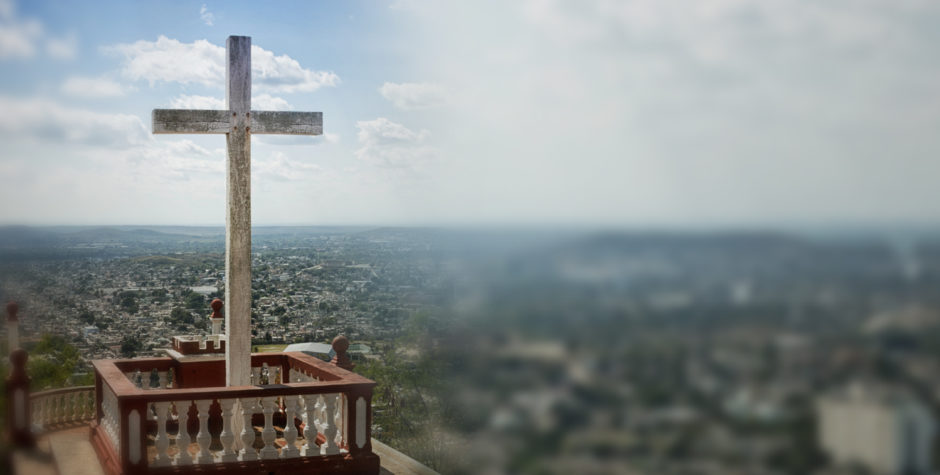ACLJ Takes Action for Cubans Still Living Under the Oppressive Anti-Religious Restrictions of the Communist Regime
Many believe with the death of the dictator Fidel Castro, the election of a new president, and recently relaxed travel restrictions that a new day has dawned in Cuba. But Christians on the communist island nation still face harsh oppression – and even arrest – for practicing their faith.
The city of Holguin, Cuba, known as one of the most beautiful cities in Cuba, is famous for its landmark Loma de la Cruz (hill of the cross) because of a wooden cross erected on hill over the city in 1790, as a protective symbol by the city’s Christians.
Cuba is promoting this symbol as one of many popular tourist destinations for travelers. But while the Cuban government is happy to profit off of Christian landmarks, its Christians continue to find their religious liberties stripped away.
Our European office – the European Centre for Law and Justice (ECLJ) – just made a critical oral intervention to the U.N. Human Rights Council to pressure the Cuban government to loosen its grip on Christian churches and followers and allow its Christian community to practice freely without fear of persecution. A right the Cuban Constitution claims to protect:
“The State recognizes, respects, and guarantees religious freedom. In the Republic of Cuba, religious institutions are separate from the State. The different creeds and religions enjoy equal consideration.”
The Cuban government has actually made life much more difficult for Christians in the country – including making a concerted effort to keep Christianity out of education, and even arresting a pastor and his wife for trying to give their kids a Christian education.
As our presentation pointed out, Cuba’s treatment of its Christian population is in stark violation of its own constitution:
The ECLJ would like to draw this Council’s attention to the unacceptable status of religious freedom in Cuba, where Christians face severe and multiple restrictions while Article Eight of the Cuban Constitution professes that the “state recognizes, respects and guarantees freedom of religion.”
The Cuban government completely controls the education system and refuses to allow any Christian community or institution to set up schools; parents can’t even home-school their own children. This constitutes a continuous violation to thousands of families who would prefer to avoid state-controlled schools that teach communist ideology.
Attempts to provide alternative education are effectively repressed. For instance, Pastor Ramón Rigal in Guantánamo obtained a license from an international Christian school to educate his children at home. The government arrested him and his wife Adya on February 2017, accusing them of “acting against the normal development of a minor”. He was sentenced to one year in prison.
It is also very difficult for priests and missionaries to obtain visas as the Office of Attention to Religious Affairs acts as an anti-religious freedom body.
Since 1959, the Government reluctantly authorized the construction of only a few churches and none of the multiple religious properties confiscated during these years of open persecution have been returned; nor have any of the affected organizations received any compensation.
President Miguel Diaz-Canel said in April this year that the communist revolution in Cuba “carries on and will carry on.” It is time to recognize that communism is incompatible with human rights.
Cuba is a founding member of the United Nations and is currently a member nation on the HRC. It cannot be permitted to continue oppressing its Christian community, in direct violation of the U.N. charter and its own constitution.
It is time for the international community to step up and pressure Cuba to change its treatment of its Christian citizens and provide true religious protections and liberty.
